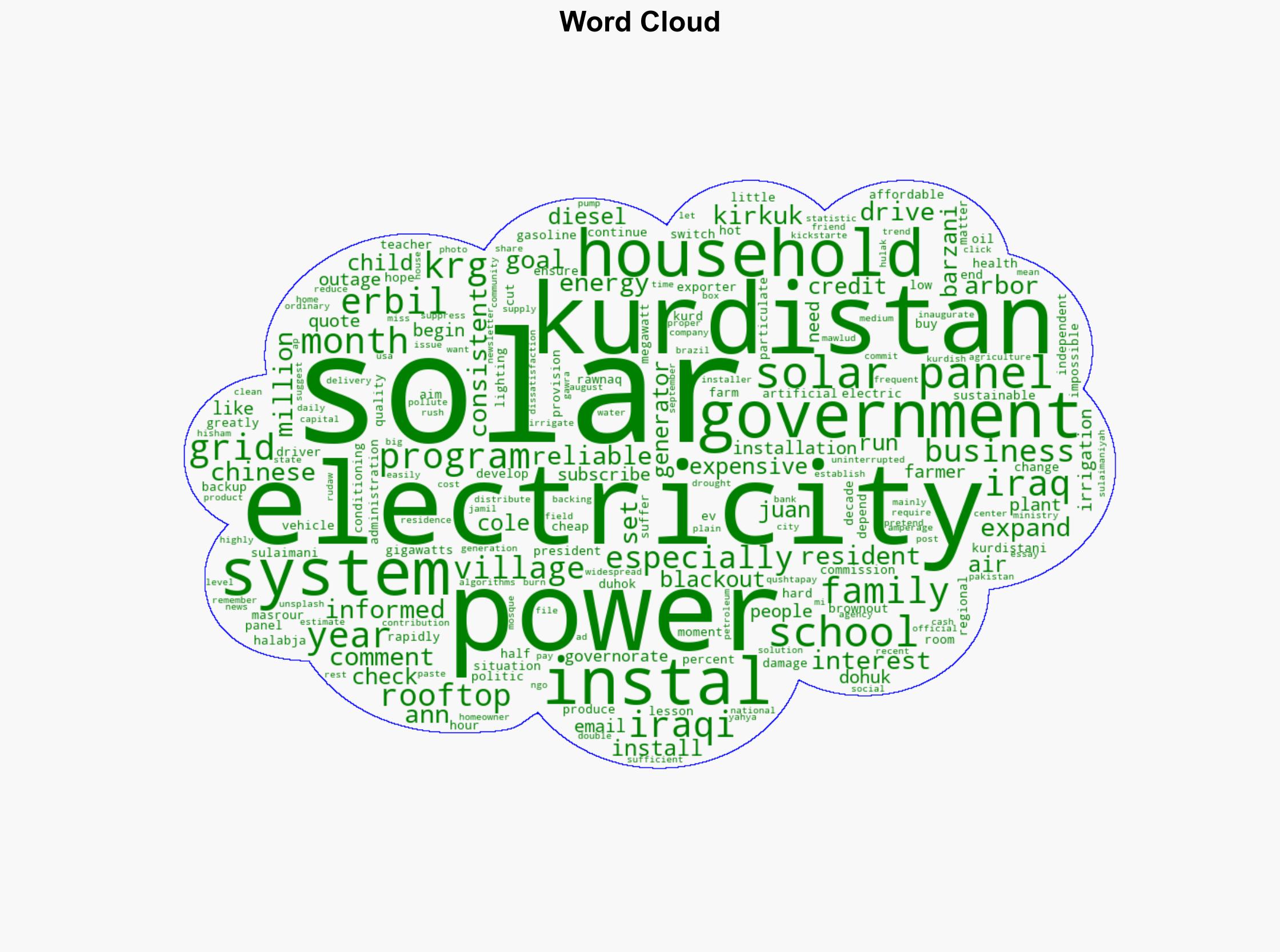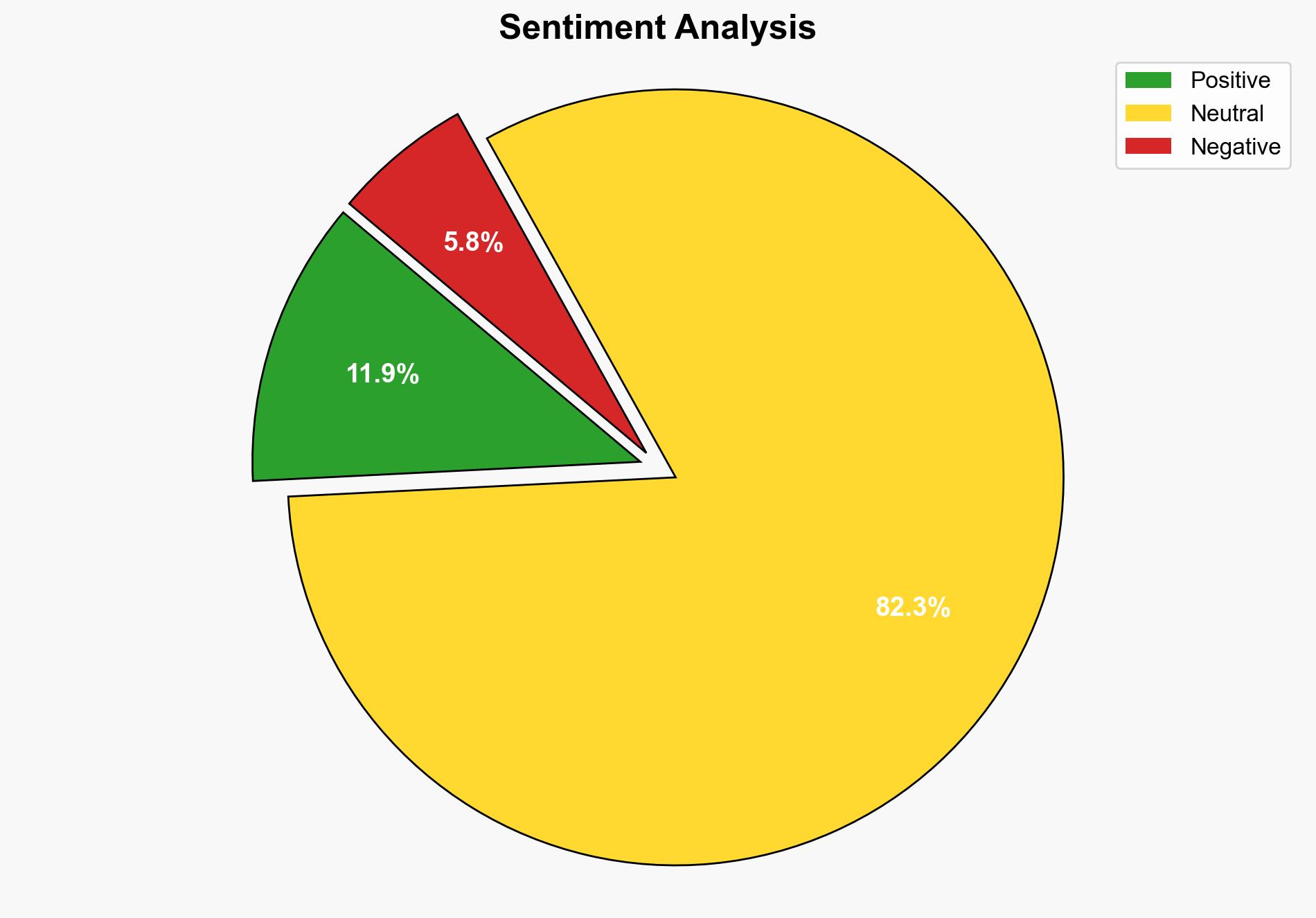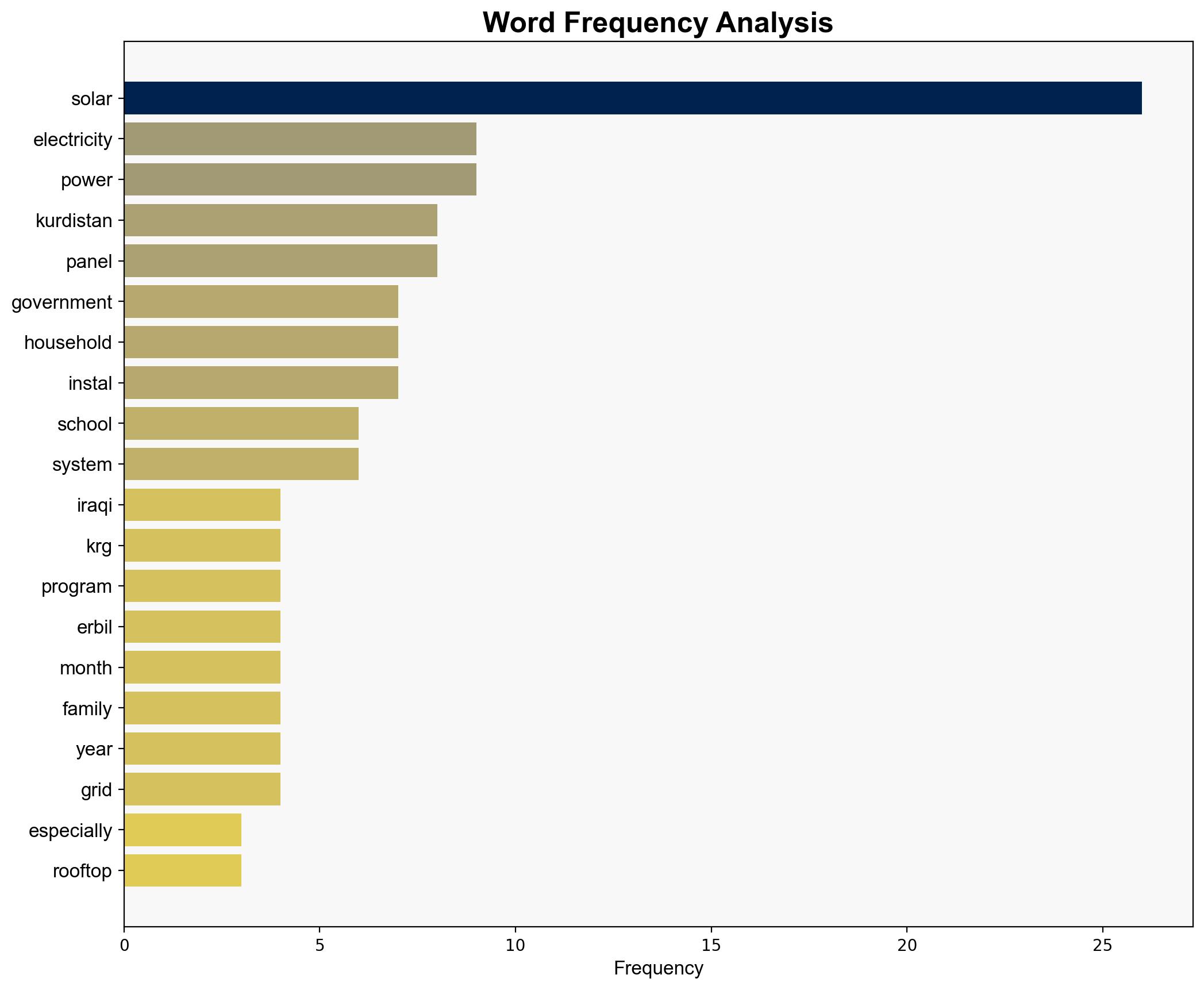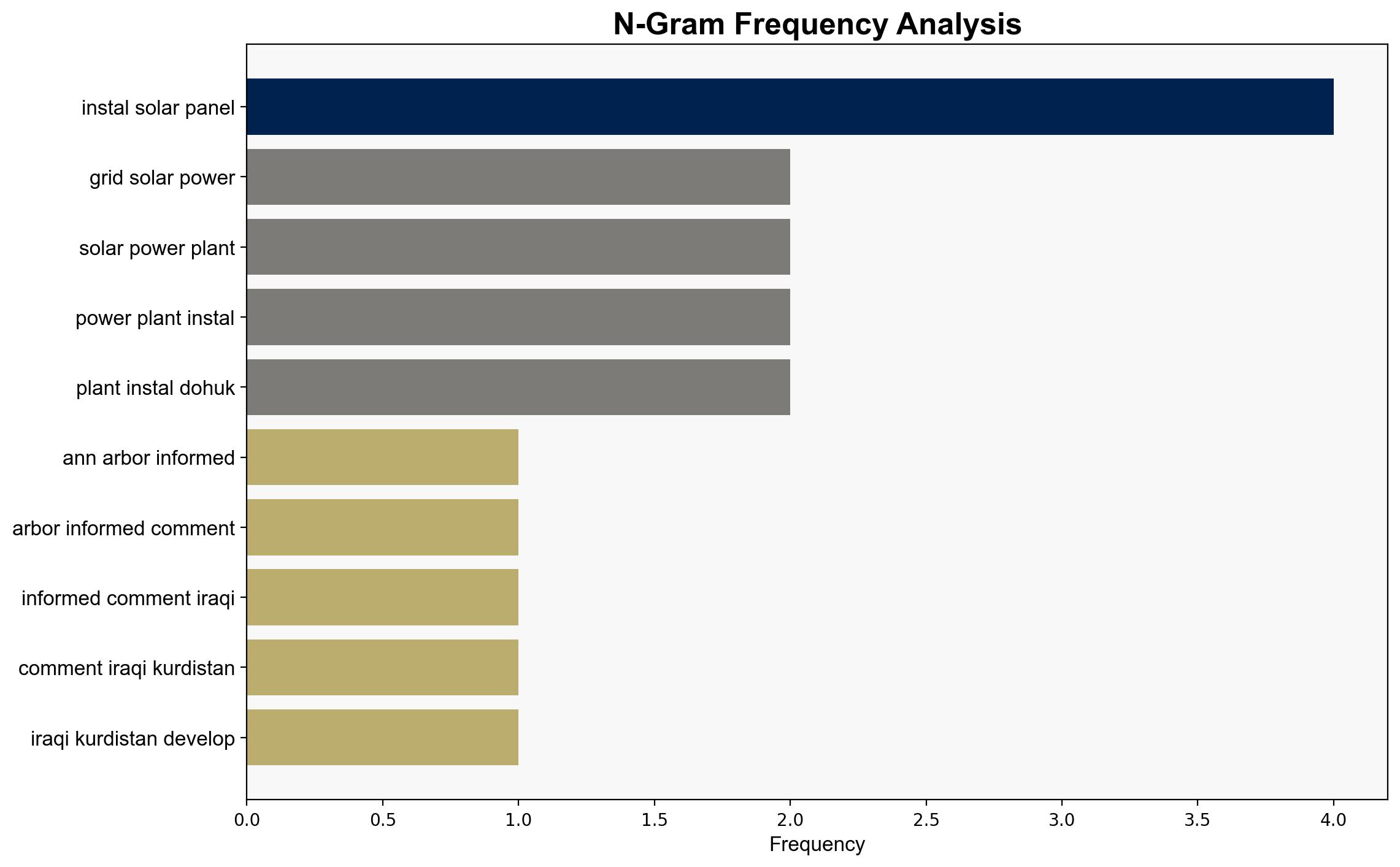Iraqi Kurdistan aims at 3 Gigawatts of Solar as Households and Villages Rush to Rooftop Panels – Juancole.com
Published on: 2025-10-25
Intelligence Report: Iraqi Kurdistan aims at 3 Gigawatts of Solar as Households and Villages Rush to Rooftop Panels – Juancole.com
1. BLUF (Bottom Line Up Front)
The strategic judgment is that Iraqi Kurdistan’s push towards solar energy is primarily driven by the need for energy independence and reliability, with a medium confidence level. The most supported hypothesis is that the Kurdistan Regional Government (KRG) is leveraging solar power to mitigate electricity shortages and reduce reliance on the national grid. Recommended action includes monitoring the implementation of solar initiatives and assessing their impact on regional stability and economic development.
2. Competing Hypotheses
1. **Hypothesis A**: The KRG’s solar energy initiative is primarily aimed at achieving energy independence and addressing electricity shortages, thereby enhancing regional stability and economic growth.
2. **Hypothesis B**: The solar energy push is a strategic move to gain political leverage and international support by showcasing commitment to sustainable development and reducing carbon emissions.
Using the Analysis of Competing Hypotheses (ACH) 2.0, Hypothesis A is better supported due to the immediate and practical benefits of addressing electricity shortages, as evidenced by the widespread installation of solar panels and the KRG’s backing of solar programs.
3. Key Assumptions and Red Flags
– **Assumptions**: It is assumed that the KRG has the financial and logistical capacity to implement large-scale solar projects. Another assumption is that local populations will adopt solar technology without significant resistance.
– **Red Flags**: Potential overestimation of the KRG’s capacity to meet the 3-gigawatt target. Lack of detailed data on financial backing and technical expertise could indicate over-ambitious planning.
– **Blind Spots**: Limited information on the potential geopolitical implications of reduced reliance on the national grid and how this might affect relations with the central Iraqi government.
4. Implications and Strategic Risks
– **Economic Implications**: Successful implementation could spur economic growth by providing reliable electricity, attracting investment, and reducing energy costs.
– **Geopolitical Risks**: The shift towards energy independence might strain relations with the central Iraqi government, potentially leading to political tensions.
– **Cybersecurity Risks**: Increased reliance on solar technology could expose the region to cyber threats targeting energy infrastructure.
– **Psychological Impact**: Improved electricity reliability could enhance public morale and support for the KRG, but failure to deliver on promises might lead to public disillusionment.
5. Recommendations and Outlook
- Monitor the progress of solar installations and assess their impact on energy reliability and economic development.
- Engage with international partners to secure technical expertise and financial support for solar projects.
- Scenario Projections:
- **Best Case**: Successful implementation leads to energy independence, economic growth, and enhanced regional stability.
- **Worst Case**: Failure to meet targets results in public dissatisfaction and increased political tensions with Baghdad.
- **Most Likely**: Gradual progress towards energy goals with mixed outcomes in terms of economic and political impacts.
6. Key Individuals and Entities
– Masrour Barzani
– Mawlud Jamil
– Qushtapay Gawra
7. Thematic Tags
national security threats, cybersecurity, counter-terrorism, regional focus




